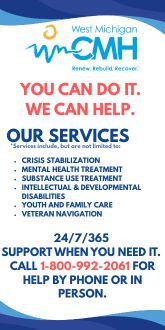Several cases of pertussis, or whooping cough, have recently been identified in the region. District Health Department #10 officials are working with local healthcare providers to assure early diagnosis and treatment of the disease. Officials are strongly encouraging everyone to make sure they have received vaccine to prevent the illness.
Pertussis is caused by a bacteria spread through sneezing and coughing. Early symptoms may resemble a common cold, with runny nose, congestion, sneezing, and mild cough or fever.
After one to two weeks, severe uncontrollable coughing spells make it hard to breathe. This causes a “whooping” sound that gives the disease its common name. The time between exposure and illness is usually between seven to 10 days, but rarely may be up to three weeks.
Complications of whooping cough include pneumonia, seizures, brain damage, mental disability, and death. Most deaths occur in infants younger than 4 months of age. Adults and adolescents typically have a milder form of the disease that may go unrecognized and untreated. It has been estimated that 70% of infants with pertussis are infected by their own family members. Most unvaccinated children living in the household will also become ill with the disease.
Pertussis is easily treated when diagnosed early on with lab testing. It can be prevented through recommended on-time vaccination. Health department officials recommend all persons in households with newborns or upcoming births to be vaccinated to help protect young infants who cannot yet receive the vaccine. This includes parents, siblings, grandparents, and all caregivers.
Pregnant women should receive pertussis vaccine during each pregnancy between 27 and 36 weeks gestation. All children should receive 5 doses of pertussis vaccine beginning at 2 months of age, with the fifth dose between ages 4-6 years. Because immunity fades over time, a booster should be given at about age 10 years. Adults also need regular boosters. Complete vaccine recommendations for all ages can be found at http://www.cdc.gov/vaccines/.
If you have any questions or would like more information, please call your local health department office, or visit our webpage at www.dhd10.org.
Crawford County: 989-348-7800 Mecosta County: 231-592-0130
Kalkaska County: 231-258-8669 Missaukee County: 231-839-7167
Lake County: 231-745-4663 Newaygo County: 231-689-7300
Manistee County: 231-723-3595 Oceana County: 231-873-2193
Mason County: 231-845-7381 Wexford County: 231-775-9942

















































.png)







